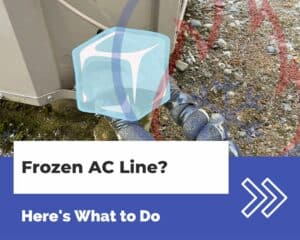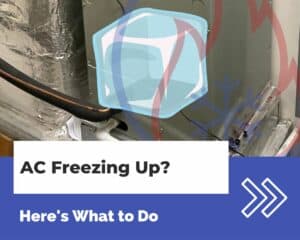In recent years, heat pumps have been touted as the latest and greatest technology for heating and cooling your home.
While heat pumps do have their advantages, they also have a few drawbacks.
In this article, I’ll go over the pros and cons of installing and using a heat pump. I’ll also explain how a heat pump’s heating efficiency is measured and how it compares to other heaters.
Heat pump pros
Heat pumps have a few key advantages when compared to other HVAC systems:
- Higher heating efficiency (when compared to standard electric heaters)
- Generally cheaper to run
- No gas and carbon monoxide risk in your home
- Doesn’t burn fossil fuels
I’ll go into more detail about the pros of heat pumps below.
Higher heating efficiency
Heat pumps have a much higher heating efficiency when compared to standard electric heaters.
Why is a heat pump’s heating efficiency so much better?
It’s because of their mechanism of heat transfer.
Heat pumps work by moving heat from the outside of your home to the inside of your home.
Electric heaters work by running electricity through a heating coil to generate heat.
The result is that a heat pump has a much higher coefficient of performance (COP) than a standard electric heater.
So what is the coefficient of performance? And why does it matter?
The coefficient of performance is the ratio of how much cooling or heating a heat pump provides to the amount of energy it uses.
For example, if a heat pump has a coefficient of performance of 3 in heating mode, then it will provide 3kW of heat while using 1kW of power. If the same heat pump uses 2kW of power, then it should be expected to provide 6kW of heat.
When compared to a heat pump, an electric heater has a much lower COP. Most electric heaters have a COP around or slightly below 1. This means that an electric heater provides the same amount of heat that it uses in power. For example, an electric heater will provide around 1.5kW of heat while using 1.5kW of power.
Bottom line: Your electricity bill will be much lower if you use a heat pump instead of electric heat.
Cheaper to run compared to a gas furnace
Heat pumps are not only cheaper to run when compared to electric heaters. Oftentimes, they are cheaper to run when compared to gas furnaces as well.
Of course, there isn’t a direct comparison between heat pumps and gas furnaces—heat pumps use electricity to move heat, while gas furnaces burn gas to produce heat.
What it really comes down to is the electricity and gas prices in your area. In most areas, heat pumps come out cheaper to run.
No gas and carbon monoxide risk
The natural gas that a furnace burns to produce heat runs the risk of leaking out. Gas leaks are dangerous because they can cause fires and explosions.
Heat pumps don’t use flammable gases to heat your home, so there is no risk of gas fires or explosions from a heat pump.
When gas furnaces burn gas to produce heat, they produce combustion byproducts. The combustion flue gases contain harmful substances such as nitrogen oxides (NOx) and carbon monoxide (CO).
Of these flue gases, carbon monoxide is particularly harmful. Carbon monoxide is odorless, tasteless, and invisible—so you can’t smell, taste, or see it. Carbon monoxide in your home presents a huge danger to you and your family.
Fortunately, the exhaust system in your furnace removes the harmful combustion gases from your home. But if there is a leak in the furnace’s exhaust system or a crack in the heat exchanger, the harmful gases can infiltrate the air in your home.
Heat pumps don’t carry any risk of leaking carbon monoxide—since they use electricity to heat your home.
Doesn’t burn fossil fuels
Heat pumps don’t burn fossil fuels, so they are generally more eco-friendly than a typical gas furnace.
Also, clean energy technologies such as heat pumps are critical for battling climate change, lowering energy costs, and reducing risks to the power grid.
In fact, in 2022 the United States President authorized the use of the Defense Production Act (DPA) to expand the production of heat pumps.
Heat pump cons
Heat pumps also have a few disadvantages when compared to other heating systems:
- Higher upfront installation cost
- Higher electricity use
- Susceptible to power outages
- Less efficient in colder climates
I’ll go into more detail about a heat pump’s cons below.
Higher upfront installation cost
If you are using your heat pump to only heat your home (no cooling), then a heat pump costs more to install than a gas furnace.
However, if you need to cool AND heat your home, a heat pump costs less to install than a gas furnace with an AC.
This is because a gas furnace with an AC coil and condenser is more complicated to install than a heat pump. A gas furnace with an AC requires the installation of 3 pieces of equipment, compared to only 2 pieces for a heat pump.
Bottom line: A heat pump costs more than a gas furnace to install if only heating is needed.
Higher electricity use
Heat pumps use electricity to facilitate heat transfer between the inside and outside of your home. When compared to gas furnaces, heat pumps use a lot more electricity.
The high electricity use of a heat pump can be a problem if electricity rates are expensive in your area—your electricity bill will be much higher.
It can also be a problem if your home’s electrical service isn’t large enough to accommodate the increased electricity use of a heat pump. You’ll need to pay an electrician to upgrade your electrical service.
Susceptible to power outages
Since heat pumps need electricity to run, they won’t work if the power goes out. This can make it challenging to heat your home in the event of power failure.
One option is to install a backup generator to keep your heat pump running when the power goes out.
Another option is to use a backup heating source, such as a gas heater.
Less efficient in colder climates
In the cold season, a heat pump works by taking heat from the outside and moving it inside your home. However, if the temperature outside is too low, then a heat pump will have trouble extracting heat from the outside air.
Older heat pumps were notorious for shutting down whenever temperatures dipped below 30° F. However, some newer heat pump models don’t have that issue—they are able to perform in temperatures below 0° F.
To combat low outside temperatures, almost every heat pump is equipped with a backup heat source—typically an electric resistance heater. If the temperature outside gets too low, the heat pump shuts down and the backup heater turns on.
For more information about heat pumps in colder climates, check out my article below:




Thanks for the info, especially on the cons. With heat pumps being pushed so hard now as “part of the path to net zero”, I wanted a reality check.
Hi Trey,
This article is helpful. Installing a new hvac system and trying to figure out what is best option. Reduction of fossil fuel use is a definite pro, especially if the push is to reduce emissions. I am part of an electric co-op so may do better because of that. Living in mid NC our weather rarely goes below freezing so not as concerned about that. Dependability is my greatest concern and cost of repair. Is there any more you can add about this?
Hi Carolyn,
Dependability and cost of repair is highly dependent on the installation and maintenance of the heat pump. If you get your heat pump installed by an experienced team from a reputable company, it will save you from headaches in the long run. Of course, there are unforeseen maintenance tasks that pop up now and then, but that goes for any HVAC system.
One con of heat pumps at the moment is that not every company can service them, however that’s changing every year as more people install heat pumps in their homes so more and more companies are starting to work on heat pumps.
Another con of heat pumps is that some of them have specialized parts that you can’t just get off the shelf. So that’s another reason to go with a reputable company that will be around for a while and can acquire parts and service the particular model of heat pump that you have installed.
Just some things to keep in mind.
-Trey